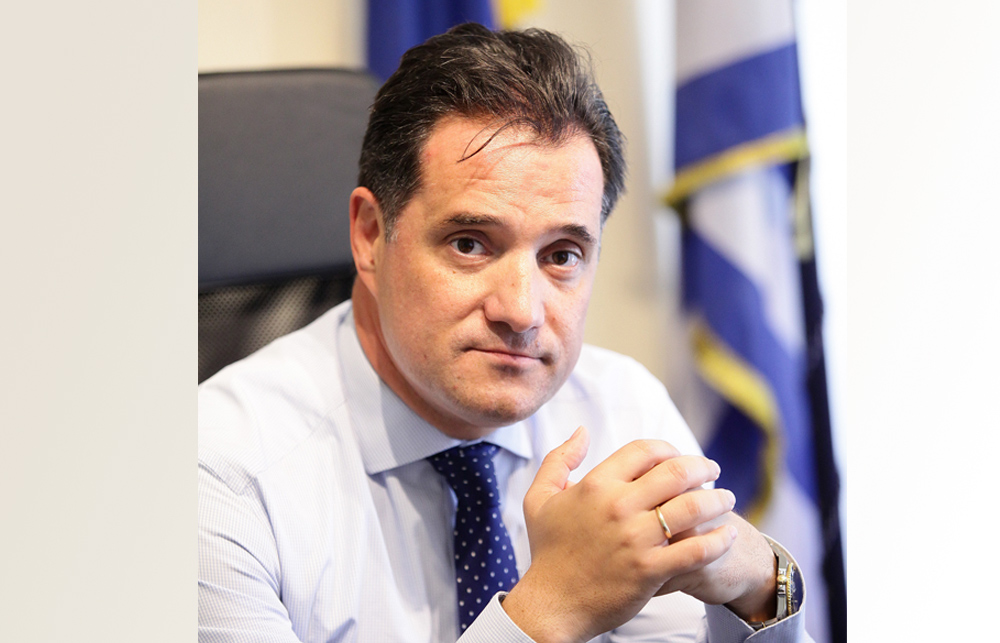
21 Nov Interview with Adonis Georgiadis, Minister of Development and Investment, Greece
As Greece focuses on developing its logistics and energy sectors, the nation looks towards the Middle East to take part in the wealth of investment opportunities it has to offer.
How significant is Middle Eastern investment in Greece’s plans to develop its infrastructure and economy?
The Middle East is extremely important in our agenda. Both the Kingdom of Saudi Arabia and the United Arab Emirates are our friends and strategic partners, and we have set a common vision for the future of our region. We admire their progress in producing new technologies, innovation and renewable energies and for their impressive leadership of their countries. We actively wish to expand our ties with the region.
The United Araba Emirates’ Mubadala Investment Company has already invested more than €1 billion in projects in the fishing, health care and other sectors. Companies from the Kingdom of Saudi Arabia such as Olayan Group and Public Investment Fund have already invested in the tourism sector. We have accelerated our economic ties and the appetite for partnerships continues to be significant. The UAE was the honorary guest at the Thessaloniki International Fair, which saw more than 800 business-to-business meetings between the UAE and Greece.
Greek people are friendly towards the Middle East. We respect the region’s history and believe in its capabilities for the present and the future. We want to unite our fate with these countries and move forward together.
What recent policy changes and political agreements have been made to further advance the country’s industrial sectors?
Greece’s new Development Law is very fast, digitalised and less bureaucratic. It has already been implemented and has begun to have results. Our Recovery and Resilience Facility plan was one of the first approved by European authorities. We are now receiving the second round of funds from the program. We were also the first country in the European Union to be approved by the European Commission’s new partnership agreement for 2021-2027 and the only one to spend money into 2022. We are very happy with all our achievements.
Luckily the conflict in Ukraine has not yet changed our plans. Both the Recovery and Resilience Facility deal and the new partnership agreement with the European Commission had already targeted moving towards a green and digital economy. The energy crash and inflation due to the war has made it even more important to accelerate our transformation into a renewable energy hub. We are ready to deliver.
How would you assess the current climate for tourism between Greece and the Middle Eastern region?
The truth is hundreds and thousands of Greek tourists visit the UAE, Qatar and the Kingdom of Saudi Arabia, and we are working to increase these numbers. Concurrently, many people from the Emirates, Qatar and Saudi Arabia come to Greece in the summer. We require more flights from Qatar Airways, Emirates and other regional carriers and are working on opening more.
How is Greece faring in its goal to become a regional energy hub and renewables investment hotspot?
Activity in the renewable energy segment is moving very quickly. Our national target was to produce 20GW from renewable energy sources by 2030. With our current licensing we will achieve this goal in 2024. We are now increasing our national goal from 20GW to 30GW by 2030. Our current bottleneck is the development of our grid. We are spending a lot of money on expanding it, which will take time. As for LNG, we have doubled the cargo to our Revithoussa LNG terminal and are waiting to carry LNG via pipeline to the Balkans. We are now building a floating storage regasification unit at the port of Alexandropoulos and will most likely build another at the port of Kavala. We want to transform Greece into an LNG distribution hub for south-eastern Europe and the Balkans.
Greece has set a goal to improve its investment grade status in 2023. What is your outlook on the country achieving this milestone?
We are just one step behind getting the investment grade and will achieve it in 2023. The war has created some challenges for global and European economies and there are predictions that there will be a recession in the eurozone in 2023. However, a recession is not expected in Greece; we will be in a much better state than our neighbours. The economic climate of 2023 is not the one we would prefer, but even given these circumstances we will achieve our goal of upping our investment grade in 2023.


Sorry, the comment form is closed at this time.